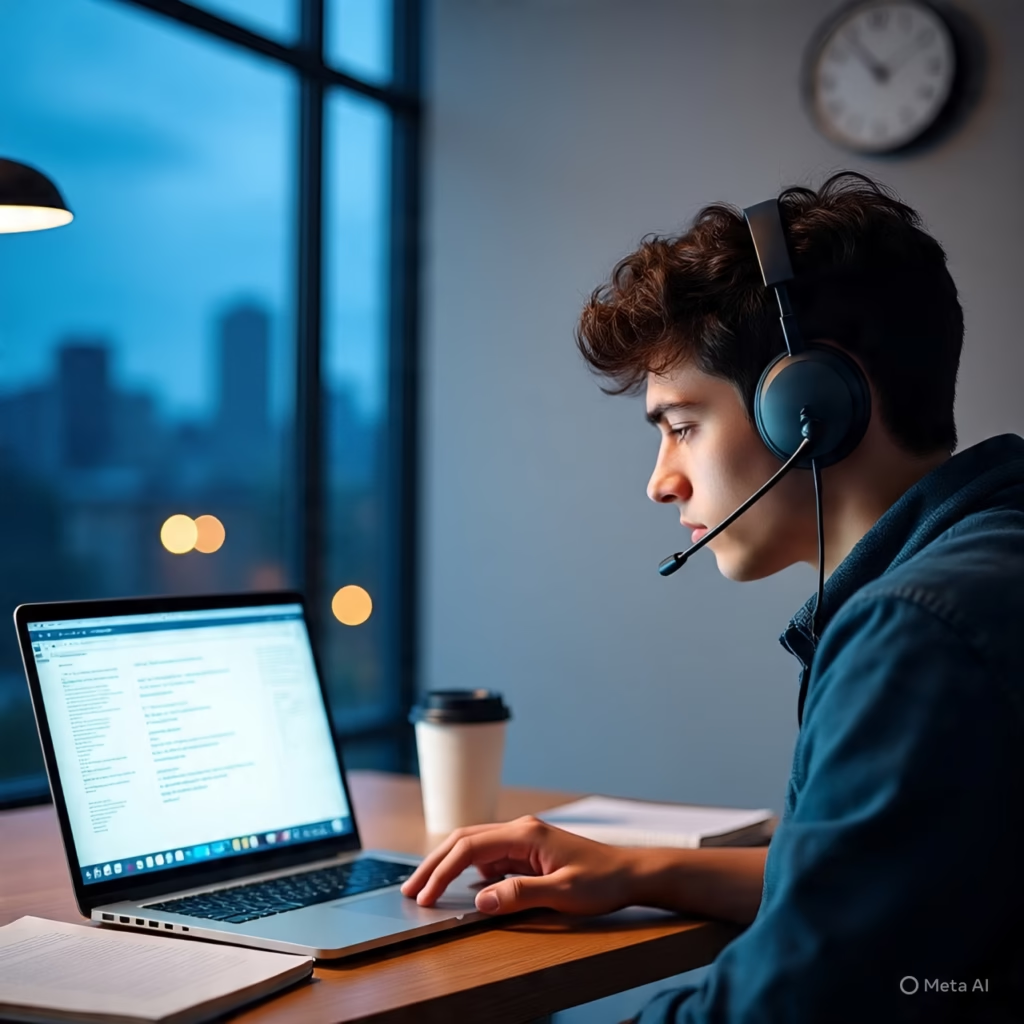Introduction.
It is important to talk about the connection between productivity and sleep.
I used to think sleep was optional. Like a luxury I’d get around to when everything else was done.
I’d stay up answering emails at midnight, thinking I was getting ahead. I convinced myself that burning the candle at both ends meant I was doing what needed to be done. Hustling. Grinding. Whatever the term was that made sleep feel like the enemy of ambition.
But the truth? I was just tired. All the time.
And worse — I didn’t even realize how much it was affecting me until I finally started sleeping like a human being again.
The Tired Brain Feels Productive, But Isn’t
You know those days where you’re doing a hundred things but somehow finishing none of them? That was me, day after day.
I believed I was being effective. However, in practice, I was making easy chores difficult. Why Not Getting Enough Sleep Was the Worst Productivity Trick I’ve Every Done I was unable to concentrate, which caused me to delay choices and double-check everything. I completed a task which would need took just ten seconds in forty-five.
That’s not productivity. That’s just being awake.
When you don’t get enough sleep, everything becomes harder.
It wasn’t just work that suffered. I was more impatient with people. I forgot conversations. I second-guessed myself constantly.
I’d reread the same line in an email three times because my brain just wouldn’t cooperate. I was snapping at people I cared about. And I was relying on coffee and adrenaline to fake being “on.”
I thought I was managing. In hindsight, I was barely holding it together.
Sleep Doesn’t Waste Time — It Saves It
The weirdest thing happened when I finally started sleeping more: I actually got more done.
Tasks felt easier. My thoughts were clearer. I wasn’t fighting to stay focused — I was just focused.
I didn’t need hours of catch-up in the evening because I’d knocked out the important stuff by mid-afternoon. My brain wasn’t lagging behind anymore.
Turns out, when you sleep well, your time actually works for you.
Productivity Isn’t About Being Awake Longer
This was the hardest part for me to accept. I used to equate staying up late with commitment. Like I was “outworking” everyone else.
But what good is being awake if you’re working at 50% capacity?
Real productivity isn’t about how long you can keep your eyes open. It’s about how effectively you can think, create, respond, solve, adapt. And none of that happens when you’re sleep-deprived and running on fumes.
I Didn’t Become a Sleep Guru — I Just Got Honest
Let me be clear — I didn’t suddenly turn into a perfect routine-following morning person. I still have late nights. I still occasionally push myself too far.
But I stopped lying to myself about what I could handle. I stopped glorifying fatigue. And I started building real rest into my life without guilt.
Some nights that means going to bed early. Some nights it means saying no to things. Most nights, it just means shutting off my screen when I know I should — even when I don’t feel like it.
The Payoff Is Real
- I think faster.
- I’m calmer in chaos.
- I complete the tasks on the list with fear.
- Rather than only attempting at getting by, I truly like what I’ve chosen to do.
Being truthful, I wasn’t aware that sleeping would make such a big difference. I thought I’d just feel less tired. I didn’t realize it would improve how I show up in every area of life.
If You’re Struggling, Try Sleeping
I know it sounds too simple. But if you’re stuck, scattered, or running in circles, it might not be your motivation. It might not be your time management. It might just be your lack of rest.
Sleep isn’t weakness. It’s recovery. It’s fuel. It’s the reset button most of us are too stubborn to push.
So here’s what I wish someone had told me a lot sooner: If you want to do more, sleep better. If you want to feel more in control, rest. You can hustle after you’ve recharged.

Might you like to read this blog.
https://manyviral.com/wellness-retreats-examine-the-benefits-of-wellness-retreats-and-self-care/
Leave a Reply